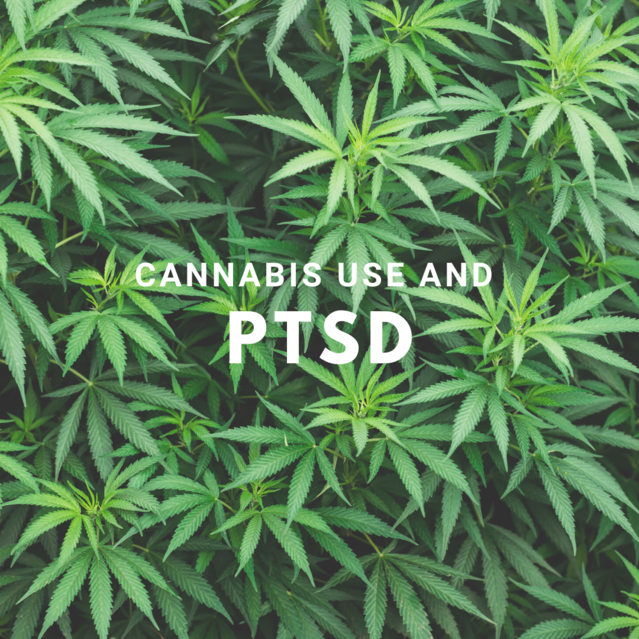Post-Traumatic Stress Disorder
Cannabis Use and PTSD
Study on cannabis use to modify the effects of PTSD on depression and SI.
Posted November 22, 2019

A Canadian study recently reported in the Journal of Psychopharmacology cites evidence that cannabis use reduces the effect of PTSD on major depression and suicide ideation (SI) among survivors who do not suffer from cannabis use disorder (CUD).
Given the prevalence of PTSD, this finding has relevance for a large number of people.
According to the US Department of Veterans Affairs National Center for PTSD, about 6 in every 10 men and 5 in every 10 women experience at least one traumatic experience in their lifetime.
Women are more likely to experience sexual assault and child sexual abuse than men. Men are more likely to experience accidents, physical assault, combat, or disaster, or to witness death or injury.
With 9.2% of its population estimated to be affected (Lake et at., 2019) Canada has an even higher incidence of PTSD.
PTSD increases the risk of depression and suicide. Survivors living with PTSD frequently use cannabis to treat associated symptoms. Substance abuse, cannabis use and cannabis use disorder (CUD) are common among trauma survivors. It has been suggested that cannabis is used as a numbing agent to manage the aftermath of trauma.
But at least one previous study found that, In the long-run, cannabis use aggravates PTSD symptoms (Lake et at., 2019).
The recently reported study analyzed data from a sample of 24,089 people who participated in a cross-sectional survey from 2012. This study explored whether cannabis use modifies the effects of PTSD on major depression and suicide ideation (SI).
The authors measured the relationship between having PTSD and recently experiencing a major depressive episode or suicidal ideation. They conducted a sub-analysis of 420 respondents with PTSD to examine the adjusted odds of SI and major depression according to levels of cannabis use.
Participants were categorized into three levels, according to their cannabis use: low-risk, high-risk, and one-time use (non-users). Low-risk users were defined as those unlikely to develop cannabis use disorder (CUD). High-risk users were defined as those who had experienced cannabis use, disorder (CUD) in the year prior to the survey.
The data indicate that low-risk cannabis users are less likely to develop a major depressive episode or suicide ideation than non-users (one-time users). However, high-risk users were at increased risk of both major depression and SI. The authors suggest that there may be a higher number of high-risk users reporting symptoms because “high-risk use is a marker of unhealthy avoidance in this sub-set” (Lake et al., 2019). In other words, high-risk users are more likely to have unhealthy patterns of seeking ways to numb out and avoid dealing with the aftermath of PTSD.
The authors of the study acknowledge several limitations. These include the fact that they performed a secondary analysis of data collected by another agency. They also pointed out that many outcomes in their data were self-reported and that this can impact accuracy.
Lastly, they point to the fact that it is difficult to draw causal interpretations from these results. The authors call for future studies to investigate the prospects for cannabis-based therapies to mitigate PTSD symptoms while taking into consideration the risks involved.
*This report is not a recommendation to use cannabis in any way or to do so without consulting a medical professional.
References
Lake, S., Kerr, T., Buxton, J., Walsh, Z., Marshall, B., Wood, E., & Milloy, M.-J. (2019). Does cannabis use modify the effect of post-traumatic stress disorder on severe depression and suicidal ideation? Evidence from a population-based cross-sectional study of Canadians. Journal of Psychopharmacology. https://doi.org/10.1177/0269881119882806


